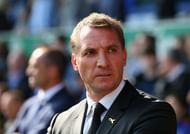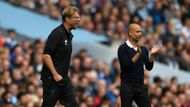In literature, patience is often referred to as a virtue. This quote is associated with another similarly infamous line, “Good things come to those who wait”. This even applies to the sport of football. As the years have passed by and football as a sport began to evolve in every dynamic possible, the managerial merry-go-round was a go-to tactic for most clubs, the elite and relegation batters alike.
The great Sir Alex Ferguson took over at Manchester United in the year 1986 and became not only the club’s biggest ever managers but one of the best in the history of the game.
Yet, he hadn’t won a single trophy in his first two years or so at Old Trafford, with his first piece of silverware – an FA Cup – only arriving in the 1989/90 season and his first Premier League title in the 1992/93 season.
Sacking culture
Contrastingly, fast forward to 2017, and we have another interesting situation to analyze.
Upon Sam Allardyce’s retirement at the end of the 2016/17, Steve Parish, the chairman of Crystal Palace, appointed Ajax and Dutch legend Frank De Boer at the helm. The Dutchman endured a stellar start to his managerial career - becoming the first manager to win four Eredivisie titles consecutively. This success saw him earn a big move to Inter where he only lasted 85 days in charge and was unceremoniously sacked on the back of a poor start to the Serie A campaign.
De Boer met with very identical fortunes in his ill-fated spell in England as he was only in charge of 450 minutes of Premier League football, the shortest reign for any manager in the league. His reign lasted a total of 77 days in London.
Similarly, this tactic led to the demise of legacies both long and short-lived of many managers in the Premier League. In the last few years alone, Claudio Ranieri was shown the door a year after having miraculously won the title with Leicester City. Jose Mourinho was sacked midway through the season after he won the title with Chelsea, and Manuel Pellegrini was sacked by Manchester City despite boasting the fifth highest win percentage in Premier League history.
Liverpool, though, have got onto this bandwagon in recent times.
Since the Premier League began, 10 different managers have had the honour of gracing the sidelines at Anfield to manage Liverpool. The club have seen some of the greatest players to have played in the Premier League don their shirts and fight for the ‘Liver bird’ on the crest with their hearts and souls.
Even though they have never won the English title in the Premier League era (they were the most successful club in the country prior to that), there were times when the trophy was painfully close to their grasp but ultimately failed to win it by a whisker.
Brendan Rodgers and Jurgen Klopp
The 2013/14 season where they finished two points off eventual winners Manchester City was arguably the closest they’ve come to winning the title. They were lead by a determined Brendan Rodgers, who just a year or so later was unceremoniously shown the door by Liverpool.
It was, in the end, down to a matter of a couple of games that rewrote the story for the red half of Merseyside, the infamous Steven Gerrard slip versus Jose Mourinho’s Chelsea and the unexpected 3-goal comeback by Crystal Palace to take a point off Rodgers’ Liverpool.
Barring this great season, Rodgers was often scapegoated and ridiculed for Liverpool’s performances. A couple of months after a quantitatively successful window having reinvested the Luis Suarez transfer fee they received, Rodgers was given the boot by Liverpool on 4th October 2015.
Jurgen Klopp, the man who was responsible for transforming Borussia Dortmund from a regular mid-table club to world beaters under his reign (he led Dortmund to a Champions League final and won two domestic Bundesliga titles) was appointed as the heir to Rodgers on 8th October 2015.
The German came with a reputation for playing a fast-paced high-octane brand of football known as ‘Gegenpressing’, which he attempted to inculcate into Liverpool and was tasked with competing for more silverware and possibly even the title.

Numbers don't lie
Since he took over, Klopp has maintained the highest win percentage for any manager against the ‘traditional’ top 6 opponents in the Premier League – a league-high 47% versus Manchester United, Manchester City, Chelsea, Arsenal and Tottenham. They’ve played 20 games in which they’ve managed 9 victories, 9 draws and 2 defeats, to Louis van Gaal’s Manchester United in January 2016 and more recently, a 5-0 defeat to Pep Guardiola’s Manchester City.
Yet, a statistical study of both Rodgers’ and Klopp’s reigns at the helm at Anfield draw two very contrasting pictures, going against the flow of general opinion.
Jurgen Klopp has been in charge of Liverpool for 73 games in the Premier League. In those 73 games, he has managed to win a grand total of 37 games, accumulated 131 points in the league and racked up a massive 142 goals scored by his team during that term.
Brendan Rodgers, on the other hand, managed to win 41 games, accumulated 141 points and saw his team score an even higher tally of 167 goals.
This, as mentioned above, is a comparison solely based on their time with Liverpool in the Premier League.
Jurgen Klopp has managed Liverpool for a total of 108 games across all competitions. A period in which his Liverpool side won 54 games, scored 196 goals and maintained a 50% win rate and 1.82 goals scored per game.
This record is, quite surprisingly, inferior to that of his predecessor – Rodgers in his first 108 games accumulated 59 wins, oversaw 225 goals scored and maintained a win percentage of 54.6%; averaging 2.08 goals a game.
Lack of evidence to prove Klopp deserves to be given more time

Although many might argue that the circumstances of the games involving Klopp and Rodgers differ vastly, the truth is that statistics do not lie. There has been a false pretence created in favour of the ever-enthusiastic German - credited to his passionate approach to the game, his charisma and a swashbuckling (albeit inefficient) style of play.
Factors such as this have virtually papered over the cracks that have persisted for quite a while. Despite having the most impeccable record against the elite teams in the league, Klopp’s Liverpool constantly falter against the conventionally smaller teams even till this very season. The former Mainz man has done nothing to improve the defensive frailties that inevitably continue to exist.
Barring Luis Suarez (arguably one of the top five forwards in the world) and an aging maestro in Steven Gerrard, Jurgen Klopp arguably has a better squad at his disposal in terms of quality. Yet he was outscored by Rodgers, the manager who was fired by Liverpool for poor results.
Building on which, both coaches suffered from the inefficiency of Liverpool’s transfer policies and poor reinvestment of transfer fees received. Liverpool saw their record transfer fee broken more than once during Klopp's reign, with Mo Salah, Sadio Mane, Naby Keita as well as the baffling purchase of Alex Oxlade-Chamberlain all reportedly breaching the £35m barrier.
The only other plausible counter-argument in favour of the German in this regard is the fact that Rodgers had a free run at the title that season without the burden of European football similar to Klopp. However, the former BVB tactician’s pursuit of the Europa league trophy came to no fruition as they lost to Unai Emery’s Sevilla in the final.
“The truth... is that Liverpool are no different under Jurgen Klopp than they were under Brendan Rodgers” said England legend Alan Shearer of Liverpool’s state at the moment.
The question is, if Jurgen Klopp’s work with Liverpool is identical (if not inferior) to that of his predecessor, will he be given a similar treatment as him?
